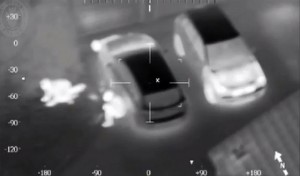So you bought an alarm system, what kind of maintenance and service should you do?
Really, you won’t need to do too much. It should work flawlessly for quite some time. The first thing to go will be batteries. All systems will have to have their system battery replaced after 3 to 5 years. When the battery is low, the keypad will notify you as will the central station. The batteries for most alarm systems in service today are 12 volt and 4 to 7 amp hour. Newer graphic self-contained systems have different smaller batteries – for example, the 2Gig Go Control has a 7.2 volt back up battery. All batteries should give you 24 hour back up. It is not a bad idea to schedule replacement of your battery every 3 years to preempt any possible issues.
If you have a wireless alarm system, you will also need to replace the batteries in the various devices such as door and window transmitters, wireless motion detectors, wireless glass break detectors, wireless carbon monoxide detectors, wireless smoke detectors, key fobs, panic buttons, and other wireless devices. Most of the new devices use lithium batteries, from CR123 3 Volt lithium batteries to lithium watch sized batteries. The smaller the device, the smaller the battery. Typically the bigger batteries last longer, 3 years plus, while the watch type batteries last 2 years plus. Devices that are used most often, like entry doors, drain quicker. On the newer systems, the keypad tells you which transmitter has a low battery, making replacement easy.
Make sure your alarm company shows you how to change the batteries during the installation. You should also get a list of the batteries required for all the various devices you have so you don’t have to scramble to find out when they are low. If you choose not to replace your own batteries, the alarm company should be happy to replace them for you.
Older systems use typical alkaline batteries, 9 volt, AAA and AA are common. These need to be replaced more often. Many older systems don’t tell you when the batteries are low so regular replacement is necessary.
Other than changing batteries, not much else is necessary. Make sure devices such as motion detectors and smoke detectors are clear of spider webs and that’s about it.
If installed and programmed correctly, your alarm system should monitor all parts and devices on the system, as well as services it is connected to, like power, telephone, and cellular. If any of these systems go down, your alarm system should alert you to that fact. The first reaction is to think that there is something wrong with your alarm system, when in reality it is working correctly. It is supposed to tell you when it is compromised when a service it relies on is not working properly.
Even though the system monitors itself, testing the alarm system is something that you should regularly do. You depend on your alarm system and you should make sure that it is working properly all the time. The best way to test the system is as follows: Call the central station and put the system on test. Arm the system and then trip a zone. Reset the alarm and then call the central station to make sure they received the right signal. Next week put it back on test and trip the next zone. Go clockwise around your house and you will eventually check all your devices. It is worth the effort to protect your home and family.
If you live in Central or Northern New Jersey and would like information on any of the topics discussed above, or if you would like us to perform a Home Safety and Security Audit, absolutely free, please call 800-369-3962.



 The images above show the difference between a parking garage being monitored by a camera with no WDR or WDR turned off on the left, and on the right the same area monitored by a camera with WDR enabled. The difference is clear as day. Why do they differ so much? The camera with the WDR enabled has two internal Charge-Coupled Devices (CCD). The two devices, or sensors, scan an image at different speeds, one low and one high, the image processor then combines the separate images producing a clearer, more balanced picture with better contrast and lighting. This process happens quickly enough to produce a stream of clear recorded footage. There are many different manufacturers that produce these WDR cameras in the market today, and not all of them use the same type of sensor and image processing combinations. The best way to ensure you are getting the best camera for your specific application is to hire a licensed security systems integrator who is educated in which camera specifications will work best in variant conditions.
The images above show the difference between a parking garage being monitored by a camera with no WDR or WDR turned off on the left, and on the right the same area monitored by a camera with WDR enabled. The difference is clear as day. Why do they differ so much? The camera with the WDR enabled has two internal Charge-Coupled Devices (CCD). The two devices, or sensors, scan an image at different speeds, one low and one high, the image processor then combines the separate images producing a clearer, more balanced picture with better contrast and lighting. This process happens quickly enough to produce a stream of clear recorded footage. There are many different manufacturers that produce these WDR cameras in the market today, and not all of them use the same type of sensor and image processing combinations. The best way to ensure you are getting the best camera for your specific application is to hire a licensed security systems integrator who is educated in which camera specifications will work best in variant conditions.
 Not all surveillance cameras are created equally. It may seem as simple as selecting a surveillance camera and popping it into place, but what about the external factors that affect the quality of recorded images? One of the top concerns for industry professionals and end-users alike is a cameras ability to see in the dark or varied light conditions. Whether you’re using interior or external cameras, their ability to function under varied light conditions is paramount. Our experts at
Not all surveillance cameras are created equally. It may seem as simple as selecting a surveillance camera and popping it into place, but what about the external factors that affect the quality of recorded images? One of the top concerns for industry professionals and end-users alike is a cameras ability to see in the dark or varied light conditions. Whether you’re using interior or external cameras, their ability to function under varied light conditions is paramount. Our experts at 
